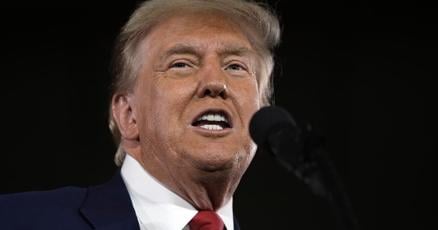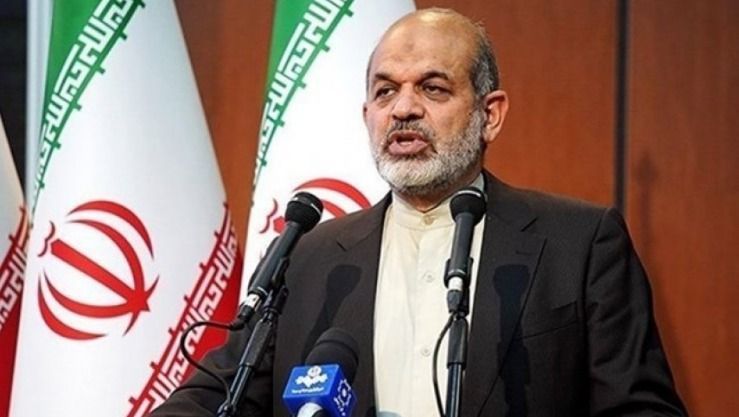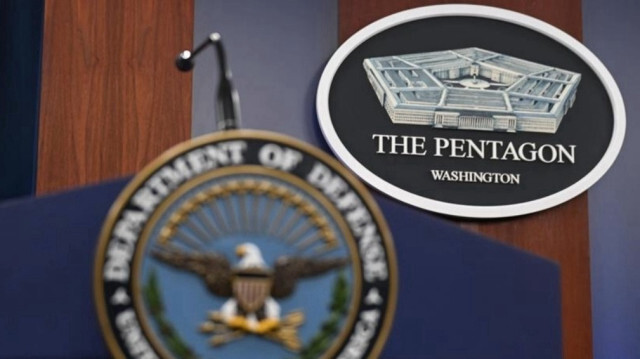Trump's Incendiary Gestapo Comparison Stirs Controversy
In a recent flurry of fundraising events, ex-President Donald Trump equated President Joe Biden's administration with the Gestapo, igniting a media and political firestorm.
Published May 06, 2024 - 00:05am

Image recovered from thestar.com
Donald Trump has reignited a heated debate with his latest incendiary comments, comparing President Joe Biden's administration to the Gestapo, the notorious secret police of Nazi Germany. This comparison came during remarks at several fundraising events, as reported by multiple news outlets. Trump, addressing Republican donors at his Mar-a-Lago resort in Florida, described his interpretation of Biden's presidency and the current administration's actions as akin to the Gestapo, accusing the Democrats of leveraging the justice system against him and utilizing it as the only means to win the election.
Despite condemnation from various quarters, Trump's rhetoric has shown little sign of moderation. He has previously used dehumanizing language to portray political opponents and immigrants, echoing terms historically associated with totalitarian regimes. While these remarks have elicited strong backlash, some Republican figures like North Dakota Governor Doug Burgum appear to downplay the significance of Trump's words, emphasizing that his main focus was not on such comparisons.
Trump's aggressive statements have consistently underlined his claims of being politically persecuted, with multiple criminal proceedings currently pending against him. He continues to allege that these trials are politically motivated, orchestrated by his adversaries to preclude his potential candidacy in the upcoming 2024 elections. While Trump's legal troubles with the judiciary persist, his relentless drive to mobilize support for another presidential run is undeterred, evident in the significant fundraising achievements at recent events.
Despite the visceral nature of the rhetoric employed by Trump, it seems to resonate with a portion of the electorate, contributing to the polarized and charged political landscape. With Biden's campaign swiftly denouncing Trump's language as reprehensible and dangerous, the stage is set for a continued clash of ideologies and visions for America's future.
Trump's penchant for evocative and provocative speeches has remained a hallmark of his political presence, sparking dialogue and debate across the political spectrum. As the United States inches closer to the next election cycle, the centrality of such rhetorical strategies and their impact on the fabric of American democracy remain subjects of intense scrutiny and debate.
The incendiary nature of former President Donald Trump's language has not only sparked renewed discussions about its appropriateness but also about its potential implications for the country’s political discourse. His allusion to the Gestapo is seen by many as more than a poor choice of words; it is viewed as an alarming indication of the deepening rift between Americans on opposite ends of the political spectrum. This latest comparison is part of a pattern of Trump employing charged and inflammatory language that, while galvanizing his base, often alienates and offends a broader audience.
History tells us that the Gestapo was a symbol of state-sanctioned terror and repression, and comparisons to such an entity, especially from a figure of Trump's stature, stoke fears and historical traumas. It's a rhetoric strategy that some political analysts believe may do more harm than good in the long run, potentially undermining the norms and mainstays of American civil discourse. Nonetheless, Trump seems to have calculated that the benefits of such bold and striking language outweigh the costs, placing his bet on its ability to animate his most ardent supporters.
However, the backlash to Trump's latest comments is not limited to the political left and center. Some within his own party are growing increasingly uncomfortable with his aggressive rhetoric. The concerns are two-fold: first, that such comparisons to the Gestapo are offensive and diminish the very real horrors of history; and second, that Trump's strategy might backfire, driving away moderate Republicans and independent voters critical for securing electoral victories.
Amidst this controversy, Trump's fundraisers have seen a steady flow of finances buoying his probable campaign ambitions. Yet, even within these successes, there are undercurrents of concern about his divisive language. Across the globe, the United States has long been seen as a bastion of free expression - a place where political discourse is robust but respectful. The impact of Trump's rhetoric therefore extends beyond American shores. It influences the international community's perception of American democracy and its resilience.
As America approaches the next presidential election, the role of such incendiary rhetoric is under the microscope. Trump's strategy may well shape the Republican Party and its approach to campaigning and policy. If the party's base continues to respond positively to Trump's style, it may signal a more enduring shift in American conservative rhetoric. Conversely, if there is a significant pushback from the electorate, it could force a recalibration of how politicians engage with the public.
Moreover, the legal proceedings against Trump raise questions about the possible intersection of legal accountability and political strategy. Some wonder whether the former president's dramatic language is designed to preemptively delegitimize any potential legal repercussions he might face. Navigating the delicate balance between condemning actions by legal institutions deemed partisan and maintaining the integrity of the justice system will remain a critical challenge for all involved.
Ultimately, the effectiveness of Trump's tactics and their influence on the American political landscape will be determined by the voters. As the nation grows increasingly attentive to the narratives being shaped by its leaders, the electorate's response to this kind of political discourse will be indicative of the prevailing values and sensibilities of the time. Trump's controversial commentary, while widely criticized, seems to go hand-in-hand with his brand of politics. It remains to be seen whether stirring such deep emotions will serve as a successful campaign strategy or contribute to a greater division in the already polarized American society.







